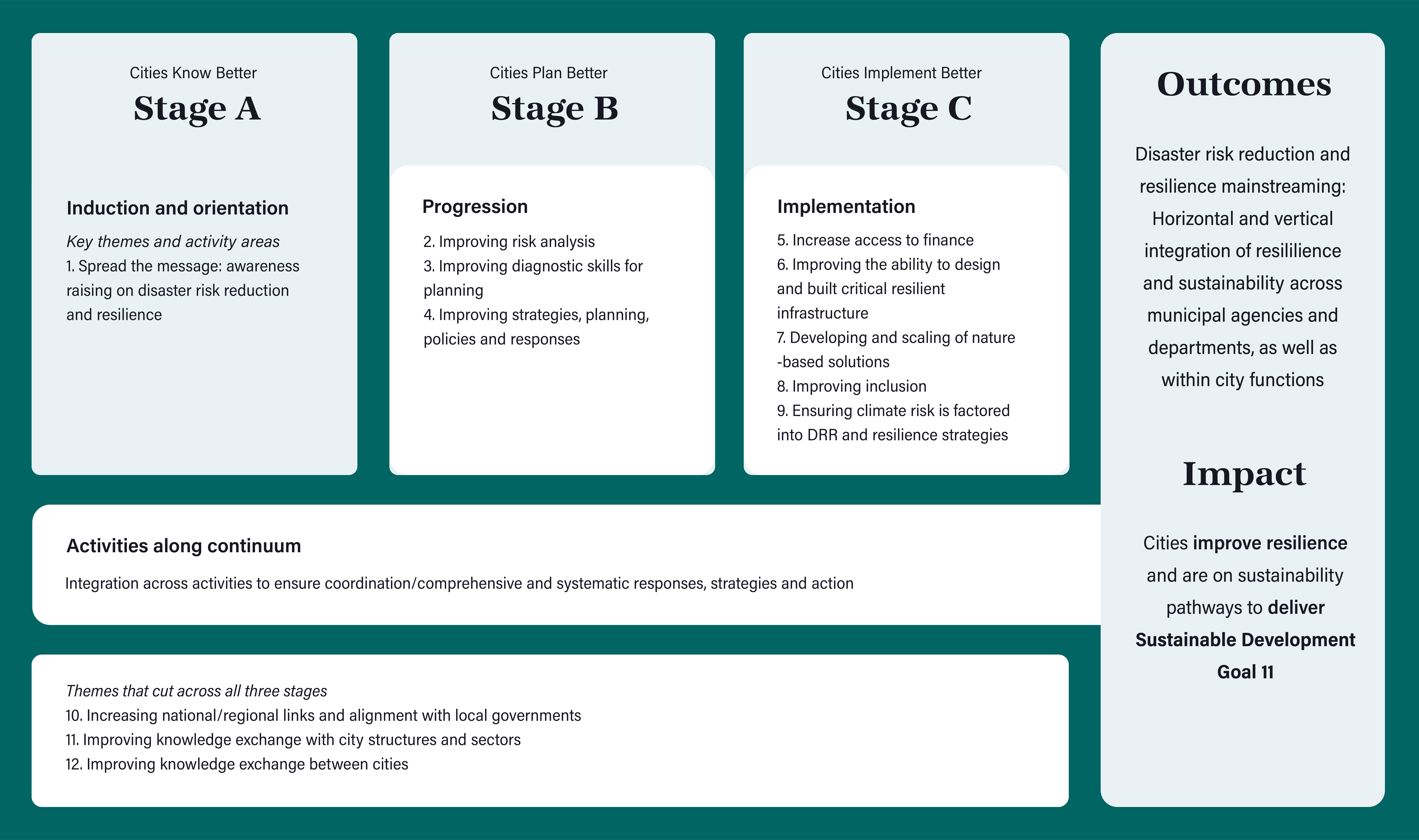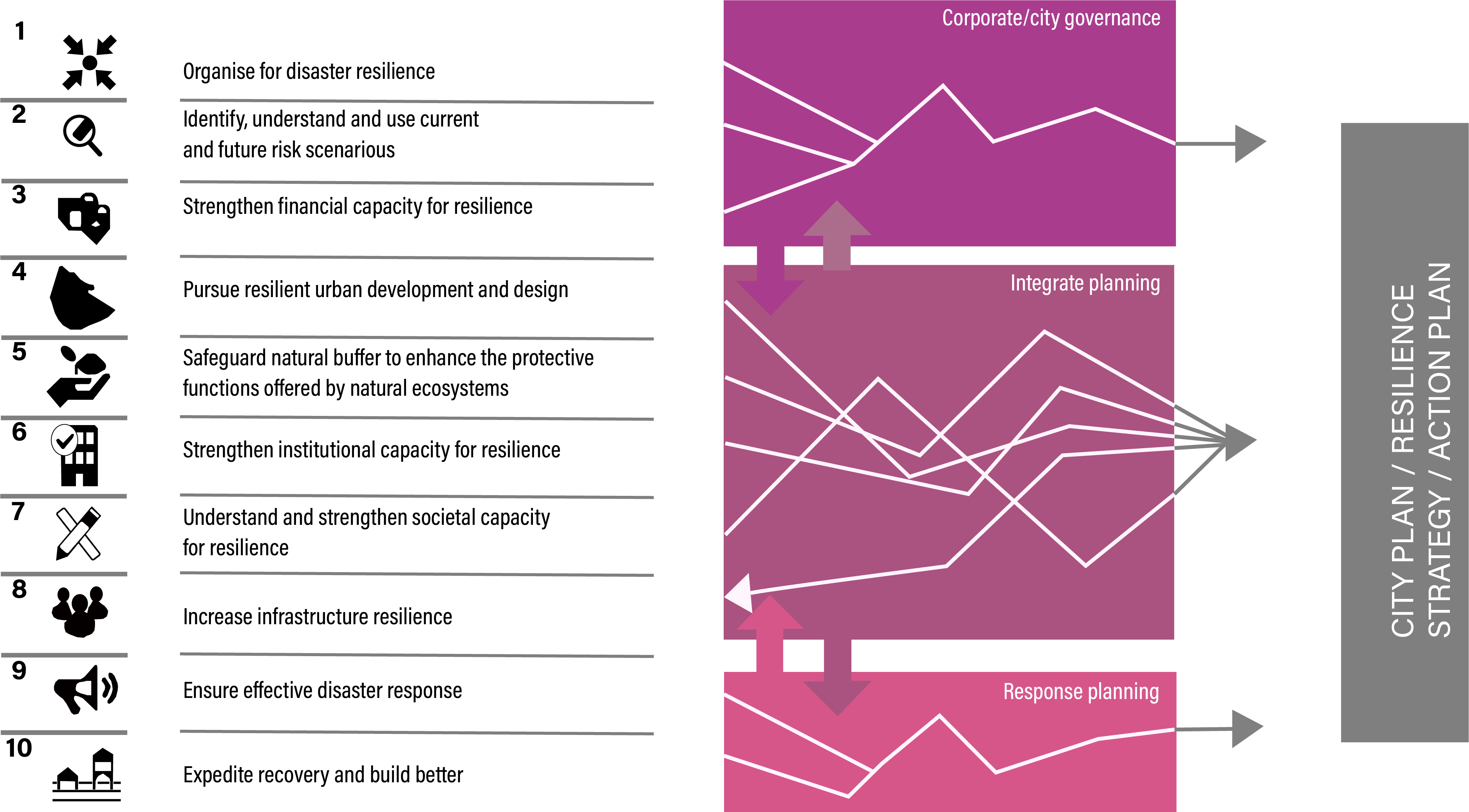
Disaster Management Manual
A manual for practitioners and decision makers!

Disaster Management Manual
A manual for practitioners and decision makers!
Highway transportation is a global necessity and essential to the economy of every country. The closure of a highway may not be only an inconvenience to the travelling public but may also cause serious economic loss. The duty of the transportation sector is to provide a safe, secure, and efficient transportation system with maximum performance and minimum impacts.
Resilient strategies based on risk scenarios that encompass local as well as regional specifics including supply chains and the needs of the road user must be understood. Roadway disruptions in different parts of the world require a collaborative multidisciplinary approach geared towards specific local risk scenarios and highlight location asset vulnerabilities that can potentially be prioritized and hardened or multiplied before a disaster occurs.
Making Cities Resilient Campaign 2030 (MCR2030), has developed a three-stage "resilience roadmap that guides cities on how to improve resilience overtime. The resilience roadmap is flexible and iterative, cities can enter MCR2030 at any stage gaining access to a range of tools and technical advisory inputs delivered by different partners.” 1

The United Nations Institute for Training and Research (UNITAR) and the United Nations Office for Disaster Risk Reduction (UNDRR) have developed an e-learning platform to promote a global understanding of resilience. The self-paced online course is entitled Making Cities Resilient: developing local disaster risk reduction and resilient strategies. The course contains the following information:
“The Ten Essentials for Making Cities Resilient were developed to accelerate implementation of the Sendai Framework for Disaster Risk Reduction (2015-2030) at local level. The Ten Essentials map directly against the Sendai priorities of action and its indicators for monitoring actions on disaster risk reduction. They are the critical and independent steps that need to be undertaken to build and maintain resilience.”
